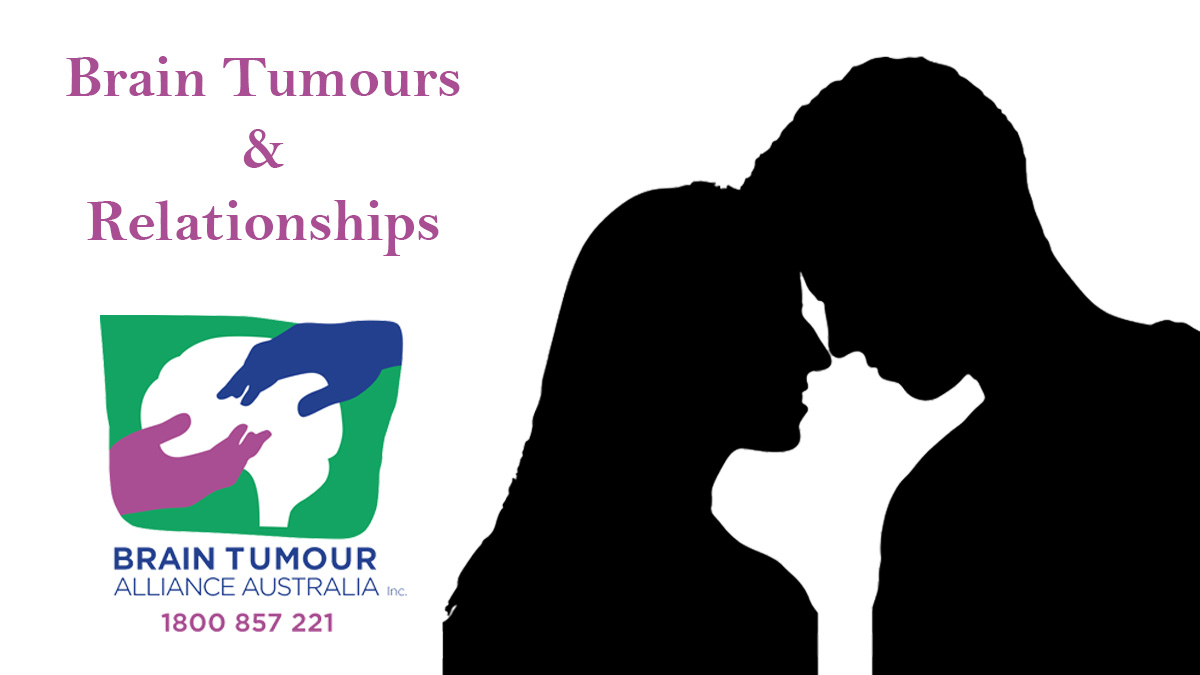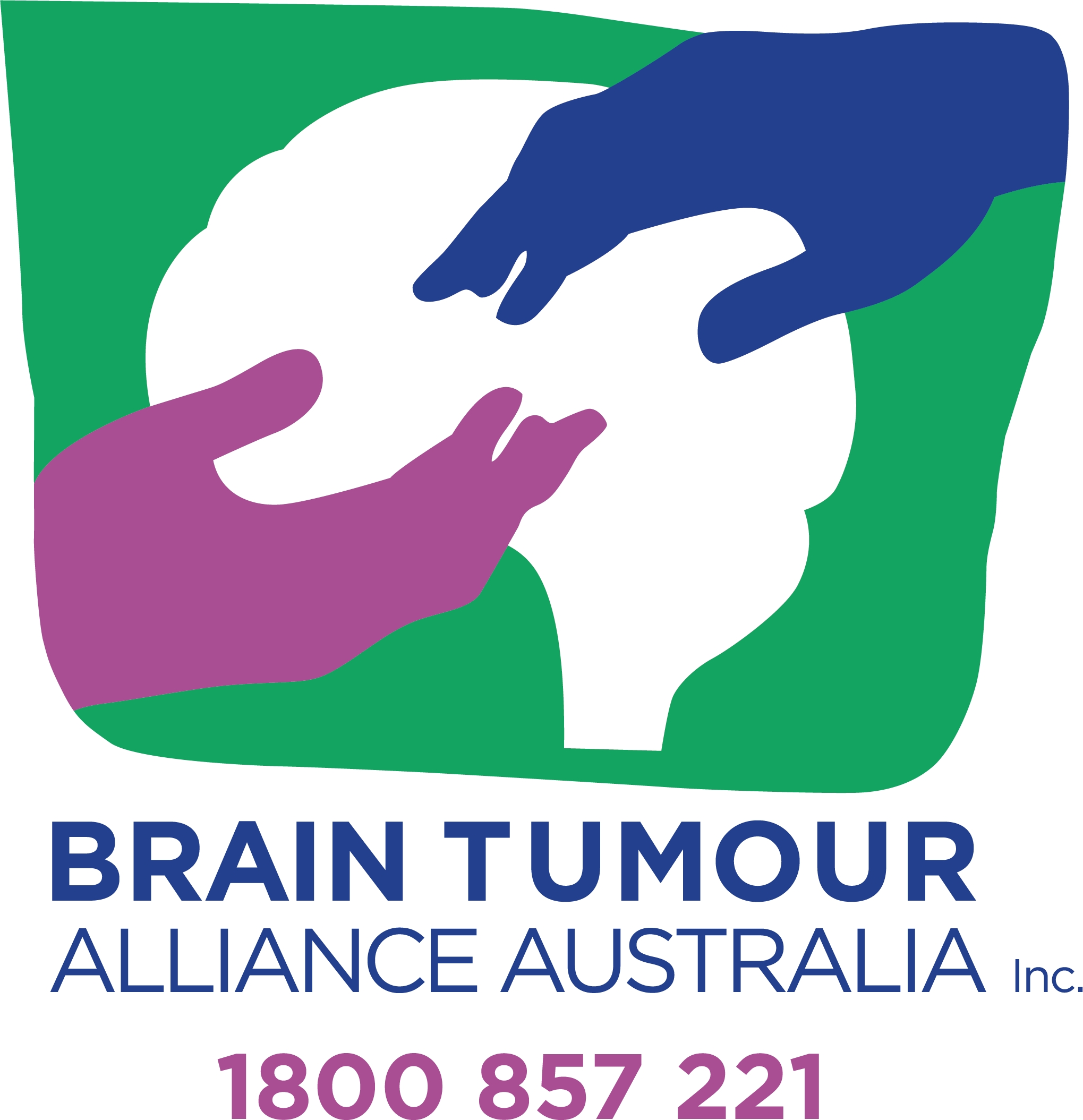
Brain Tumours and Relationships
by Mark Dalliston
Introduction
A diagnosis of a brain tumour is likely to prove stressful for everyone involved. Roles are likely to change too and with change comes stress. Some people will show a commitment to the patient, while others will drift away from the patient's life. The key person is the person's partner. They suddenly shift from being equal to the patient, to having to cope with a multitude of changes. Some of these changes include; medical decisions, which may be life and death, quality of choices; and the rush of trying to come up to speed on all the information about brain tumours. All of which make the diagnosis the start of a stressful chain of events. When I was diagnosed my wife was seven and a half months pregnant and we had only been married one year. If we could make it through this, then we would be ok.
Telling People About My Diagnosis
I had never thought that this was going to be difficult. From the very first call, it was obvious this was not going to be the case. Being told I had cancer was bad enough; being told brain cancer, intuitively they knew was the worst. It was an eye-opener to see that news of the diagnosis was as much of a shock to friends and relatives as it was to me. Some reacted with alarm, one said they would have to hang up, while another reacted as if she had not heard me and continued to chat about an upcoming holiday. We learned to tell people in stages. If we told them I had brain cancer, then we could feel the shock the person was undergoing. A better approach was to tell them the sequence of events that led to the diagnosis. If the friend or relative was in a medical profession, this made the whole thing easier.
It was the start of a change in the relationships between us and others. Some friendships grew stronger, while others drifted away. Overall, the number of friends dropped but of those who stayed their support grew stronger, once they got over the shock. We have heard of others whose partners left them. We have also found that our relatives have coped in different ways.
Stress Of Being A Carer
With the diagnosis of a brain tumour a partner is usually turned into a carer at some point in the journey. It takes an already strong relationship to survive this transition. I now appreciate what my wife went through. With my treatment and a baby in tow, it was certainly stressful.
As well as suddenly being lumped with responsibility for running the family, they may have shared the burden of the extra financial strain. Although I managed to go back to work after four months and my employer was really good, not all are so fortunate. The loss of work can lead to uncertainty. Loss of income may affect one's self-esteem or lead to depression. Financial strain is a situation that only adds extra stress.
Changes in a patient's personality may be apparent post-treatment. I became disabled after my surgery. This was difficult for someone who was used to training (read over-training) their whole life. Surgery, radiotherapy and chemotherapy may have many different effects on a patient. Recent progression affected my speech and created difficulty in being able to hear what was being said when more than one person was talking.
When you are unsure whether the person you love is going to be around for long, this increases the stress felt. One reaction is to stare into space like when caught in headlights. Uncertainty can lead to poor, or no choices being made. Calmness goes a long way in a situation like this. Sometimes the reality is that the carers, and patients, have little choice in their coping mechanisms. I came from a difficult upbringing, which I now believe was an asset in this situation.
Friends
Dealing with relationships and cancer highlights the importance of communication. If you stop talking, it's going to start eating at you. We were surprised how keen close friends were to help. All we had to do was ask.
Cancer can make an okay relationship worse. It can also make a close relationship stronger. While we were amazed about the friends who withdrew from our lives, we were pleasantly surprised by how many were strengthened. A trouble shared definitely eased the load in a stressful situation.
Friends may provide the partner turned carer support. It is too easy for everyone to focus on the patient. If this happens, then I believe that it is more like no one will be providing the direction needed. This may be rectified if the carer is coping well and is active in making decisions. Friends can make helpful suggestions and provide practical help, especially if there are children involved. They shouldn't assume that everything is okay - everybody will struggle in these circumstances. We have called on the help of friends numerous times.
Doctors
Unfortunately, too many doctors look at the statistics and write you off. To be fair to them, it is not an easy diagnosis to give. This is where experience comes in on their part. I believe that they can provide an accurate prognosis, while still outlining a plan and providing hope. Hope is an essential quality of life. Joy, peace and love can still create a high quality of life. A negatively stated diagnosis can make things worse. I was told to get my affairs in order and that I would probably live between six and twelve months. No wonder depression is so common among us. Alternatively, a friendly approach may make you have hope and think about things that may help your situation. It is very important to ask questions. My wife took notes, for which I'm eternally grateful to her. It cannot be overstated how important second opinions are; you never know when they might be needed.
The worst experience we had was when one doctor talked about his relative with cancer for half the appointment, then proceeded to walk out of his office before we had time for questions. If the doctor/patient relationship fails, don't try to go it alone - change doctors!
Patient
I never noticed that I had become quite selfish after treatment; one never does. While it is understandable that I became more selfish, it didn't help matters, especially with a baby around. I found I was able to help with one thing. Our daughter would scream every evening for two hours. My wife could not stand this, while I finally found myself useful by babysitting.
Whether the patient is positive or negative makes a difference. I have always been an optimist, which served well in these circumstances. Being positive was a blessing as it attracted like-minded people. Strangers would come up to me and remark how well they thought I was doing. You may not be able to control your personality or the effects of cancer on your brain, but certain things may help: physical activity, fresh air, plenty of sleep, eating well, limiting TV and alcohol.
Other changes may make social situations difficult. During my latest progression, I had speech changes. Until the swelling was reduced through medication I could barely talk; in fact, for a week I could not talk at all. So I began talking less and that situation worsened until my latest course of treatment.
Conclusion
It was enlightening to view firsthand the effect the diagnosis of a brain tumour had on others. Of course, there were shocks for us in how people reacted. We found that giving the sequence and timing of events helpful. Carers need to ask for help if they are to keep their heads above water. There is plenty of stress in taking on extra roles and responsibilities. Being able to take time out and having others help are two of the coping mechanisms. Friends can be a good resource - you just need to ask for help. Minding children, especially during medical appointments or treatment is a great benefit. They can also be a source of assistance with driving.
A doctor's attitude, I believe, maybe an important source of the placebo effect. Certainly, depression does help any chronic condition. To this overcome you should ask your doctor plenty of questions, take notes and seek second opinions. In all, I can't claim to have enjoyed my cancer journey, but it has gotten easier. Where it will be next I don't mind (notice I didn't say care) as long as there is joy, peace, and love.
If you would like to share your story with us, please get in touch, we would love to hear from you!
To return to the BTAA homepage, please click here.

